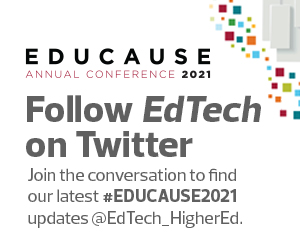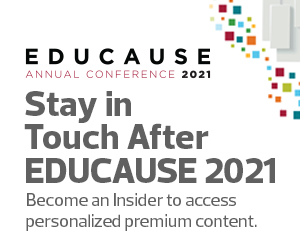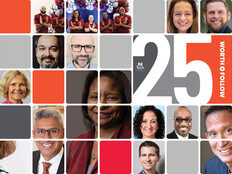The platform will also present the information in a way that is designed for sharing on social media. “One advantage of this platform is you can easily connect students with alumni to see what skills and activities helped them on their journey,” he said.
He noted the website will provide blockchain-enabled services that empower students to control what personal information and data are shared.
The platform will document badges, endorsements, the completion of boot camps and massive open online courses, internships and other kinds of corporate training. The site will be available for students to use throughout their life as they continue to expand their knowledge after college.
And it will be a creative way for colleges to earn revenue. “We expect that employers will be very interested in advertising to our members based on their skills and capabilities,” Suess said.
MORE ON EDTECH: Colleges innovate to support at-risk students.
Dione Leung, a student at McMaster University, questioned how the institution would identify skills. “What metrics are you using to distinguish soft skills? What are the certifications, and how will you balance that between a student’s experience versus a need for standardization?” she asked.
Suess pointed to a variety of career service organizations that analyze soft skills. “These are things that can easily be microcredentials,” he said. “One of the key things that we’re going to be leveraging are microcredentials and badges that can track when you’re achieving learning outcomes and other competencies in your courses.”
The fact is, faculty already do most of this work when they plan curricula. “We just don’t make it transparent to students,” he said. “This is a beginning that will allow us to do that.”
An Easier Way for Students to Navigate College
Keith McIntosh from the University of Richmond wants to develop a portal to make it easier for students to strategically navigate their academic careers.
“Success is often driven by who you know, and when you know,” he said. “Despite arriving at graduation, many have missed out on connections with people, topics and opportunities that can enhance — or perhaps change — the trajectory of their lives and careers.”
McIntosh recalled a former student who said he didn’t know there were mentoring services that he could take advantage of until his senior year. And he only learned about the services by happenstance. “He wished he would have known during his freshmen year,” McIntosh said.
Such oversight might result from an excess of information and choices, making it difficult for students to find the services and experiences that support their aspirations and needs.
“We endeavor to meld the curricular, co-curricular, extracurricular activities and aspirations into one space for students to strategically and thoughtfully plan their time in college,” McIntosh said.
His presentation struck a chord with the student sharks, who may have their own struggles with information overload. They picked his initiative — and Lum's intelligent tutoring system — as the winners of CIO Shark Tank.
Read more coverage of EDUCAUSE 2021, including interviews and advice from higher ed experts.














